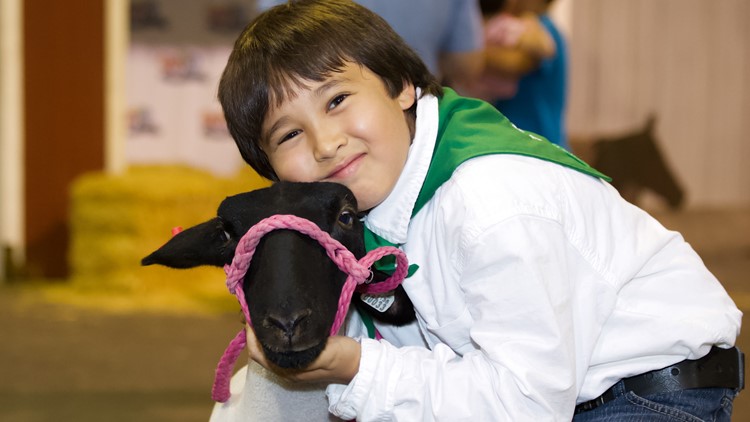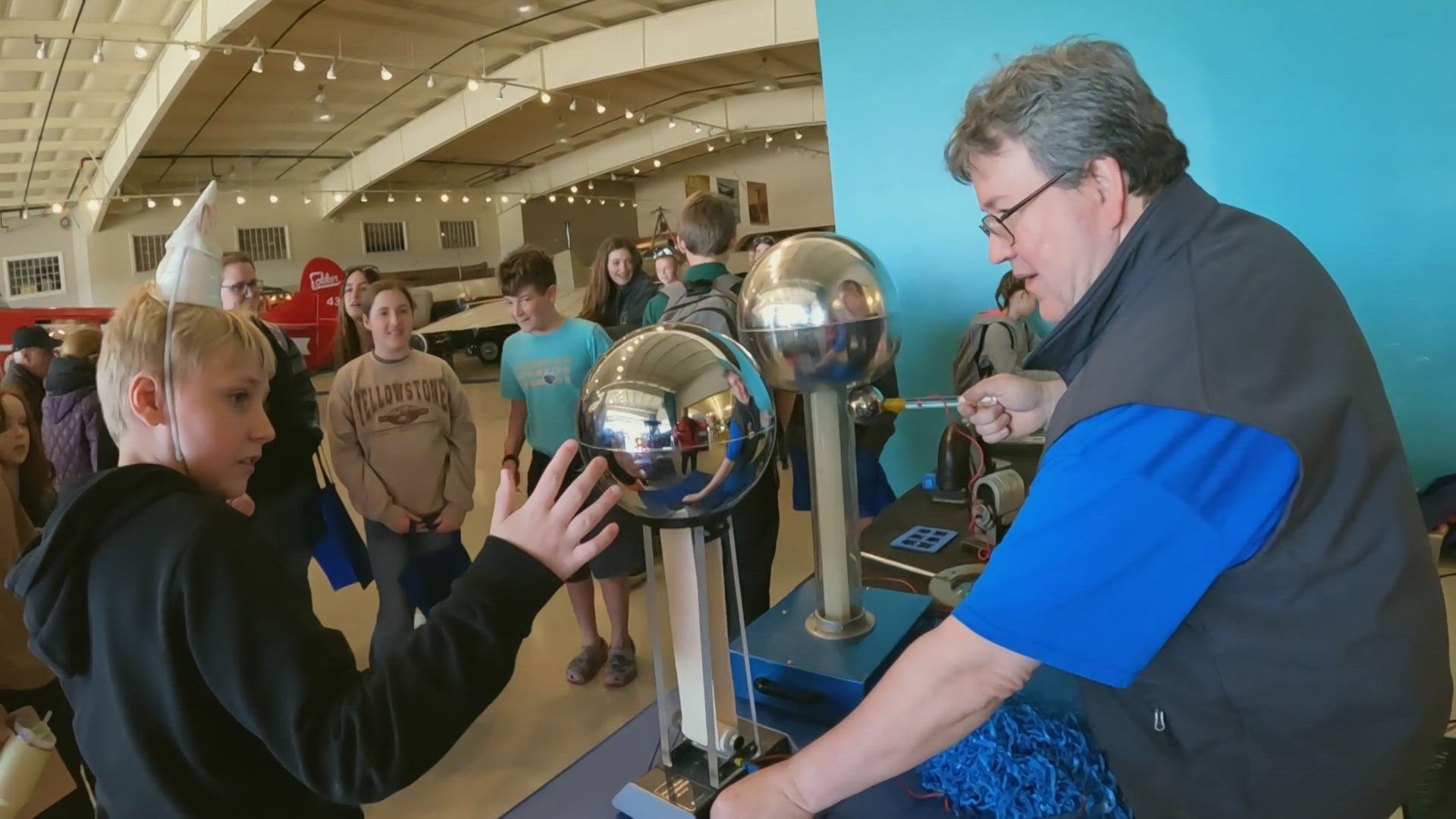PORTLAND, Maine — With an aging farming population in Maine, 4-H started a new ambassador program to introduce opportunities in agriculture to kids across the state.
Tara Marble is a youth development professional at the University of Maine Cooperative Extension 4-H. She said the new program is called the Maine 4-H Agricultural Leadership Ambassador Program.
“It really kind of came from some of the needs of [the] youth we had heard anecdotally that were in our 4-H programs,” Marble said.
It's a common theme that if the kids were not involved in UMaine Extension 4-H, they probably didn't have anybody in their school or academic community that was an agriculture resource for them unless they had a passionate teacher about the subject, according to Marble.
When she and her team were designing the program, Marble said they asked themselves, what about all the other kids who aren't in UMaine Extension 4-H and might not have someone to introduce them to things like soil health or farming?
"What are ways we can be connecting them to overcall agriculture?" she asked.
Around 90% of the food in Maine is imported, according to Marble, and she believes it's worth it to invest in kids and teach them agriculture is a worthwhile career pathway.
That path to an agriculture career could be a college degree for some. For others, it's trade work within the field, she said. It could also be learning about the small business model to set up a farm stand or even their own farm. But the ambassador program will help teens explore their options into how broad agriculture can be.
“How can we bring agriculture and agricultural science to schools where it’s not offered?” Marble asked.
Scott Greaney with Greaney's Turkey Farm said 4-H kids are the future of agriculture in Maine. He said the organization is a fun introduction to production, agriculture, and marketing.
"We supply local 4-H kids with broiler chicks to raise and sell. It's the cutest damn thing to see the eyes on their faces when they sell their animal, then see them deliver it all processed up to the buyer," Greaney said.
Greaney's farm processes the poultry free of charge, and the UMaine Extension 4-H kids help bag it and weigh the birds so they stay involved in the process.
"We have adults bring birds to us now that say they remember bringing their 4-H chickens and turkeys here," he said. "That is the greatest feeling and to hear their memories."
Farming clubs used to be more prevalent in schools, but especially in New England, they're not as supported anymore, according to Marble.
“Agriculture doesn’t tend to be a subject that’s explored very often. Therefore, it’s not something that kids see as a career pathway," Marble said.
New England doesn't have the output other parts of the U.S. do for agricultural products, Marble said. Culturally, the region developed a little more removed from farming, she said. Some families are generations deep in farming across Maine, but it's not as common as before.
The youth development professional said it's difficult to say if interest in agriculture is the same among teens both in population centers like Portland and rural towns like Rockford.
The 4-H professional is partnering with a pilot group right now, and that group is working to reach out to more populated areas like Bangor and Portland to find those kids interested in agriculture. The kids that are in UMaine Extension 4-H now have said they want to connect outside of their current communities, and finding other agriculturally-inclined kids across Maine would make that possible, according to Marble.
Right now the ambassador program has kids from Arundel and other parts of southern Maine up to the Belfast area and Oxford County, Marble said.
“We would really love a larger representation of kids in Maine," she said.
Those currently participating in the ambassador program are a mix of kids who are in UMaine Extension 4-H and those who aren't.
The real problem Maine is facing right now is the median age of farmers in the state is up to 56.5 as of 2017, according to the Maine 4-H Agricultural Leadership Ambassador Program website. The median age was 49 in 2002.
"From my perspective, what I’m seeing with that data is there are fewer young folks becoming involved in agriculture and farming in Maine," Marble said.
That's fewer young Maine farmers getting involved in the industry of growing food everyone eats to survive. Without a new younger population to learn the lay of the land or take over some Maine farms, those businesses are in danger of changing to non-agriculture lands, according to Marble.
The youth development professional said young folks aren't fulfilling those job roles because a good many of them are moving out of state and doing other things.
"That’s a problem. You can only farm for so long," she said.
Maine is in a situation where the state needs younger folks to care about this topic, according to Marble.
National 4-H Council’s President and CEO Jennifer Sirangelo released the following statement on the ambassador program:
"For more than a century, 4‑H has provided young people with opportunities to spark and grow their interests in agriculture, giving them the courage, confidence, and resilience to lead. Programs like Maine 4-H Agricultural Leadership Ambassador Program equip young people with the vital skills to succeed in agricultural careers.”
The ambassador program kicked off in November and is ending its fall section right now, Marble said. The idea was to make sure teens involved in the program have activities during all four seasons.
Going forward, Marble said her team is trying to navigate the schedules of kids across Maine so the ambassador program doesn't interfere with sports participation or other events.
In the future, Marble said she wants teens interested in agriculture to make it a career or even just part of their lifestyle. "I think I speak for our group on that."
She added, "Most of all, I think I want them to feel like they can make a difference, that they can find something, use their passion, and make a difference, no matter how big or how small.”
For more information about the ambassador program, click here.



